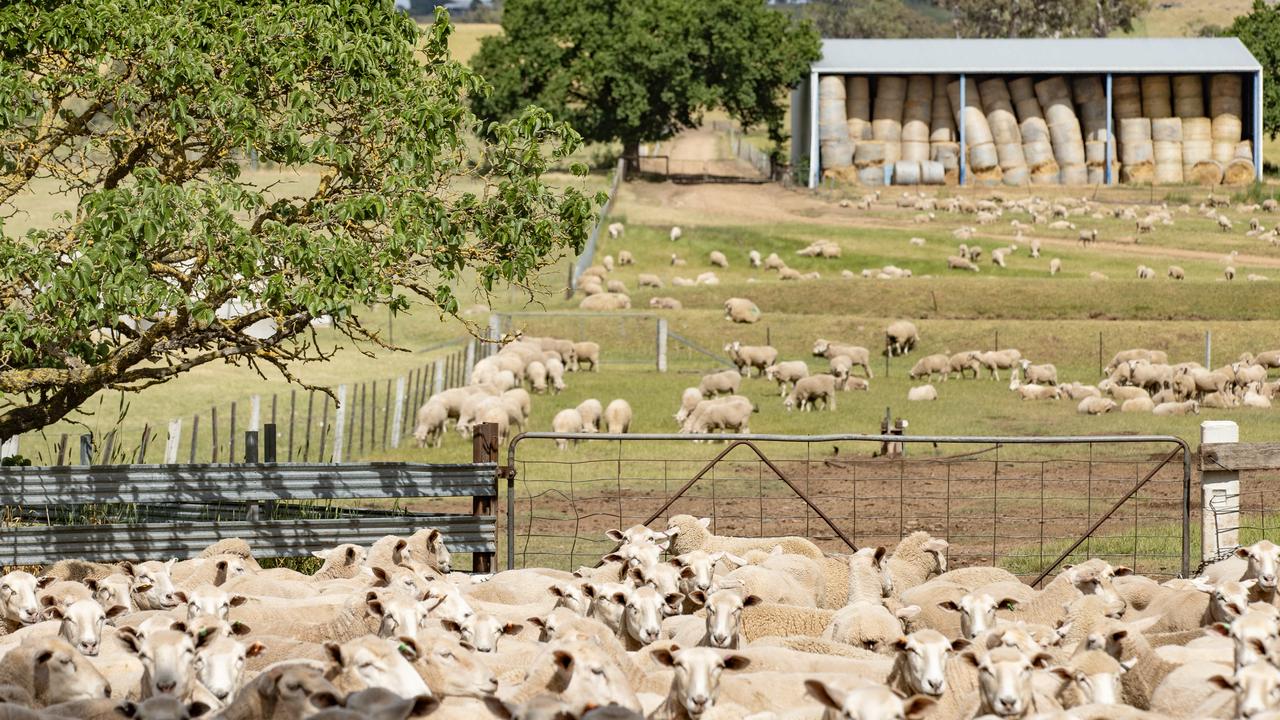Myrtleford stock and station agent Stephen Street reflects on 50-year career
BUSH LEGENDS: Stephen Street’s half-century agency career has been “bloody interesting”. See what he considers the highs and the lows of his time working the yards.
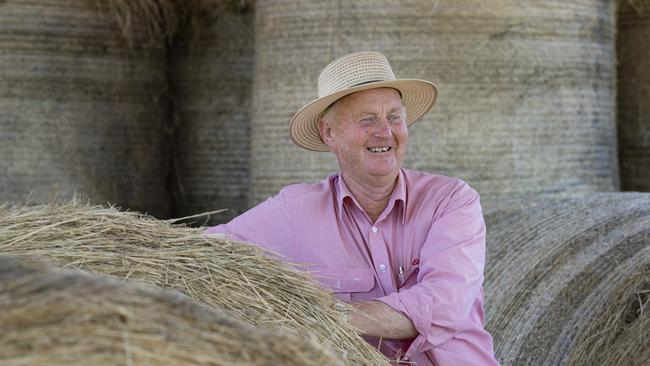
It’s been a “bloody interesting” 50 year career as a stock and station agent for Stephen Street.
From heartbreaking lows watching clients bury worthless stock in the 1970s to the present boom-time highs, Stephen reflects on the countless ways the industry has changed over five decades.
“The changes in this area alone where I am at Myrtleford have been massive,” Stephen says as he considers the circumstances that have shaped the industry in his neck of the woods.
“The high country grazing leases disappearing and the loss of those wonderful mountain calves to the whole industry. The loss of land through development, urban sprawl and hops industry that’s reduced the grazing areas down,” he said.
“The impact that the climate has had over the years, major drought and bushfires over land and subsequent loss in cattle numbers. And finally the increase in the prices of livestock from the stage where they were worth nothing. You couldn’t sell them because the expenses exceeded the value. A lot of cattle went in a pit in a lot of places.
“In the late 1970s it started to move forward. It has taken a long time for it to get to the level it has today.”
FEELING THE PAIN
Stephen says it was difficult watching clients’ battle through the tough years.
“It was terrible. It was a very testing time. A lot of people battled for quite a while with the prices offered over those years. There was not a lot of meat left on the bone, things were pretty tight,” he said.
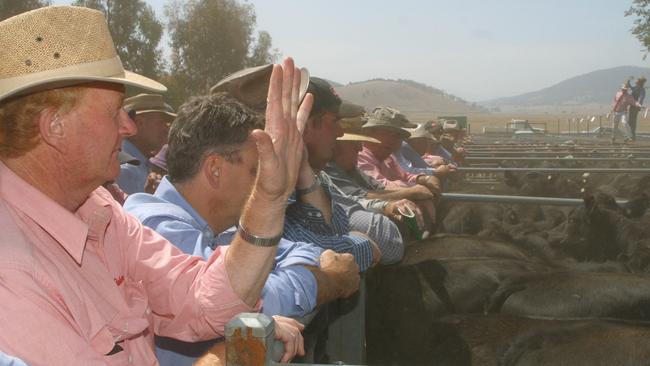
The bond, trust and friendships developed with clients is one of the reasons he has stuck around.
“The best part of the job is the people and the characters you meet. You meet a lot of very good people. A lot of your clients become some of your good friends,” he said.
“A lot of them confide in you and trust you, and you keep your mouth shut on those personal things that they might tell you. There’s an old saying, a shut mouth catches no flies,” he says, adding he often shares such wisdom with “the young ones”.
“I also say to them, ‘let your eye be a judge and your pocket be a guide’ when buying cattle, ‘the good ones are never dear’ and ‘don’t buy shit’,” he laughs.
A FEW GOOD MEN
Stephen has worked for five different agencies over the years including Unthank and Co, Bottrell and Smith, Gippsland and Northern, Wesfarmers Dalgety, and Elders where he has remained for the last 30 years.
“I’ve worked with some of the best in the job, there’s no doubt about that. I’ve worked with some very, very good people,” Stephen said.
“I’ve also worked with some bastards and people that I’ve wondered why they were even there.”
He laments the loss of some great colleagues in the industry due to rationalisation, redundancies and small businesses bought by or sold to bigger players.
“There was some really good guys that left the industry for many reasons. That was a time when it was tough. Those changes upset a lot of people and it didn’t sit well with them so they moved on or left the industry,” he said.
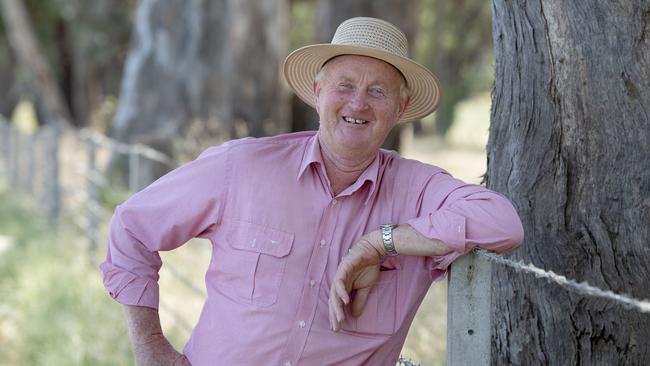
A LIFETIME OF CHANGES
Stephen, who turns 70 next year, said the stock agency game had seen many ups and downs but “if you ride the waves, the sea does flatten out when it gets to the beach.”
“There has been a lot of resistance to a lot of things over the years,” he said, recalling the changes to vendor declarations, introduction of the NLIS and shift to road transport over rail.
“We’ve seen that grow from 14 foot tray trucks to three trailer road trains, and two deck B-doubles are now the accepted mode of transport,” Stephen said.
“Volume loading and the ability to move things quickly. You can go a long way in an eight hour day with a lot of cattle. The system is very good.”
Stephen considers the closure of Newmarket Saleyards in the 1990s to be a major turning point in the industry and the end of an era for smaller saleyards.
“Newmarket was the big clearance house and seen as the place to maximise your return in the 70s and 80s,” he said.
“As Newmarket closed it then required selling centres elsewhere to absorb bigger numbers and they started building bigger yards so it centralised the selling to the six main marketing centres we have today.”
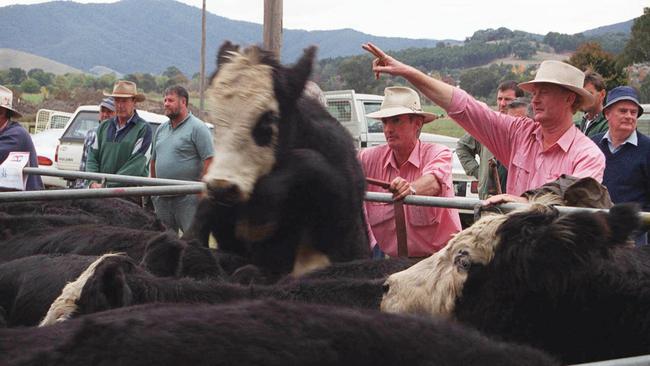
As saleyards consolidated, selling methods were altered. The system of selling fat cattle in the morning and stores in the afternoon transitioned to separate sale days. Cents a kilogram live weight sales were introduced and curfews were stricter.
“The worst part of the job was the change to live weight selling and having to be there depending on your draw and curfew from midnight through nearly the full day,” Stephen said, adding it was nothing to see 5000 cattle at a time in the spring selling season.
The long hours, early starts and late finishes made life tough for agents’ families, including Stephen’s wife of 44 years Heather and their four daughters.
“She is a very tolerant person my wife,” he says earnestly.
When post-sale weighing was introduced it caused “a major uproar” among producers who no longer knew exact cattle weights at sale time.
“Since that rule came in there has been a lot more movement of cattle either sold direct to feedlots or over the hooks,” Stephen said.
In more recent years there has been a shift to online selling and commission buying, reducing the amount of people attending saleyards. There are fewer meat companies, more feedlots and more females joining the stock agency ranks.
Stephen said the changes to the breeding world had also had a huge influence on the beef industry with better genetics lifting quality to new highs.
CAREER HIGHLIGHTS
Stephen considers guiding current Elders livestock manager Brett Shea to victory in the young auctioneers competition at Wodonga in 2008 one of his treasured achievements and “something that gave me a lot of enjoyment”.
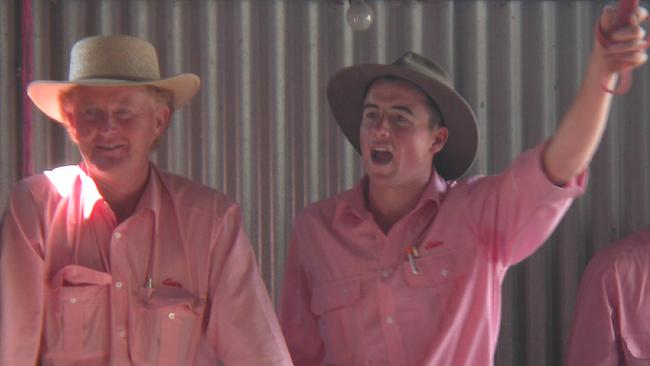
But the current booming livestock market remains the cardinal highlight of Stephen’s half century in the game.
“To see people receiving the current prices for their commodity is very rewarding for everybody that is involved,” he said.
“I tell my clients if they want better than this then they had better put a For Sale sign on the gate.”
There’s only one question Stephen gets asked more than how high can cattle prices go, and that’s when are you going to retire?
“I’d certainly like to do it until I’m 70. That’s what I’ve said but who knows. I’ll find it hard to fully stop working. You get yourself absorbed in this industry.”




